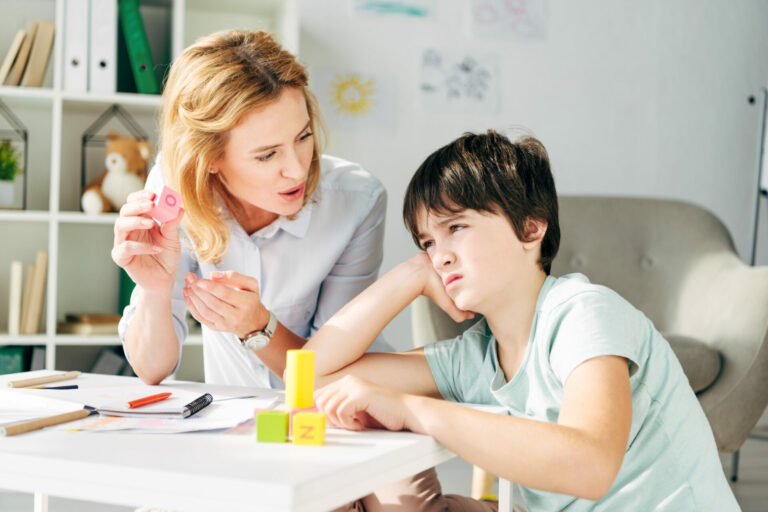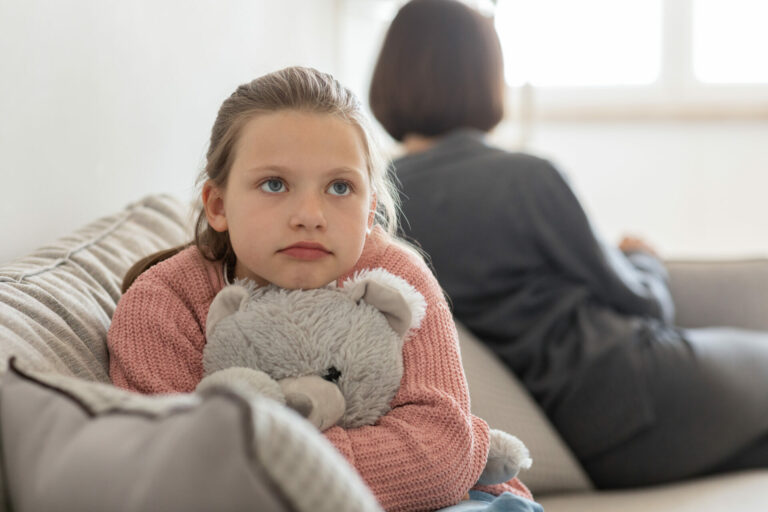The parent plays a vital role in a child’s therapy. Why is this? If the child is enrolled in therapy, isn’t it the therapist’s job to help the child heal? Yes, and no. While the therapist can help equip the child with skills for healing and facilitate a healing process, the parent’s involvement is essential.
First of all, there are the basics of a therapy appointment. The parent needs to make the appointment and get the child to the appointment. Whether by driving the car or by facilitating a telehealth meeting, the parent is the one who makes the engagement between the therapist and the child physically possible. The parent models response to therapy in this facilitation. Is the parent anxious? The child might notice and wonder if they should also be afraid of this new person entering their lives. Is the parent stressed? The child might feel that stress. Is the parent comfortable or uncomfortable? Genuine or putting on a façade? How the parent approaches therapy affects the child, whether they intend for it to do so or not.
There is a principle in therapy called co-regulation. Therapists use this to help provide a calm, safe space in which to explore the presenting problem. The parent provides co-regulation by the way that they approach therapy. They also provide co-regulation afterward. Parents who welcome their child back and praise the children for their work in therapy help reinforce the value of therapy for the child. Negative comments about therapy, however, may do the opposite.
Parents can help the child practice what they learn in session. The therapist may assign the child “homework,” and whether or not the child remembers to practice it may depend upon the parent. Yes, children have a role to play in their own healing, but part of the role of parents is to support children in doing tasks they might not yet be developmentally ready to do. Those tasks might include therapy homework.
Parents play a role in child therapy because the child’s struggle does not affect only the child. The struggle affects every member of the family… whether from a scheduling perspective in that treatment for the struggle requires extra time commitments, or whether others in the household feel the weight, and possibly the brunt of the child’s emotions. Strengthening the child through therapy requires strengthening the parent, and really the whole family system so that the entire system can move towards healing. A therapist can only help a child so much before the therapist needs the parent’s support and help. When the therapist receives this and the family can work together as a until, forward progress can be tremendous.
What role does a parent play in therapy? One no one else can fill… not even the therapist. Parent participation in therapy is vital if therapy is going to be successful. Children heal in relationships, and the parent-child relationship is one of the most important relationships they have.
Lecturas recomendadas
The parent plays a vital role in a child’s therapy. Why is this? If the child is enrolled in therapy, isn’t it the therapist’s job to help the child heal? Yes, and no. While the therapist can help equip the child with skills for healing and facilitate a healing process, the parent’s involvement is essential.
First of all, there are the basics of a therapy appointment. The parent needs to make the appointment and get the child to the appointment. Whether by driving the car or by facilitating a telehealth meeting, the parent is the one who makes the engagement between the therapist and the child physically possible. The parent models response to therapy in this facilitation. Is the parent anxious? The child might notice and wonder if they should also be afraid of this new person entering their lives. Is the parent stressed? The child might feel that stress. Is the parent comfortable or uncomfortable? Genuine or putting on a façade? How the parent approaches therapy affects the child, whether they intend for it to do so or not.
There is a principle in therapy called co-regulation. Therapists use this to help provide a calm, safe space in which to explore the presenting problem. The parent provides co-regulation by the way that they approach therapy. They also provide co-regulation afterward. Parents who welcome their child back and praise the children for their work in therapy help reinforce the value of therapy for the child. Negative comments about therapy, however, may do the opposite.
Parents can help the child practice what they learn in session. The therapist may assign the child “homework,” and whether or not the child remembers to practice it may depend upon the parent. Yes, children have a role to play in their own healing, but part of the role of parents is to support children in doing tasks they might not yet be developmentally ready to do. Those tasks might include therapy homework.
Parents play a role in child therapy because the child’s struggle does not affect only the child. The struggle affects every member of the family… whether from a scheduling perspective in that treatment for the struggle requires extra time commitments, or whether others in the household feel the weight, and possibly the brunt of the child’s emotions. Strengthening the child through therapy requires strengthening the parent, and really the whole family system so that the entire system can move towards healing. A therapist can only help a child so much before the therapist needs the parent’s support and help. When the therapist receives this and the family can work together as a until, forward progress can be tremendous.
What role does a parent play in therapy? One no one else can fill… not even the therapist. Parent participation in therapy is vital if therapy is going to be successful. Children heal in relationships, and the parent-child relationship is one of the most important relationships they have.




